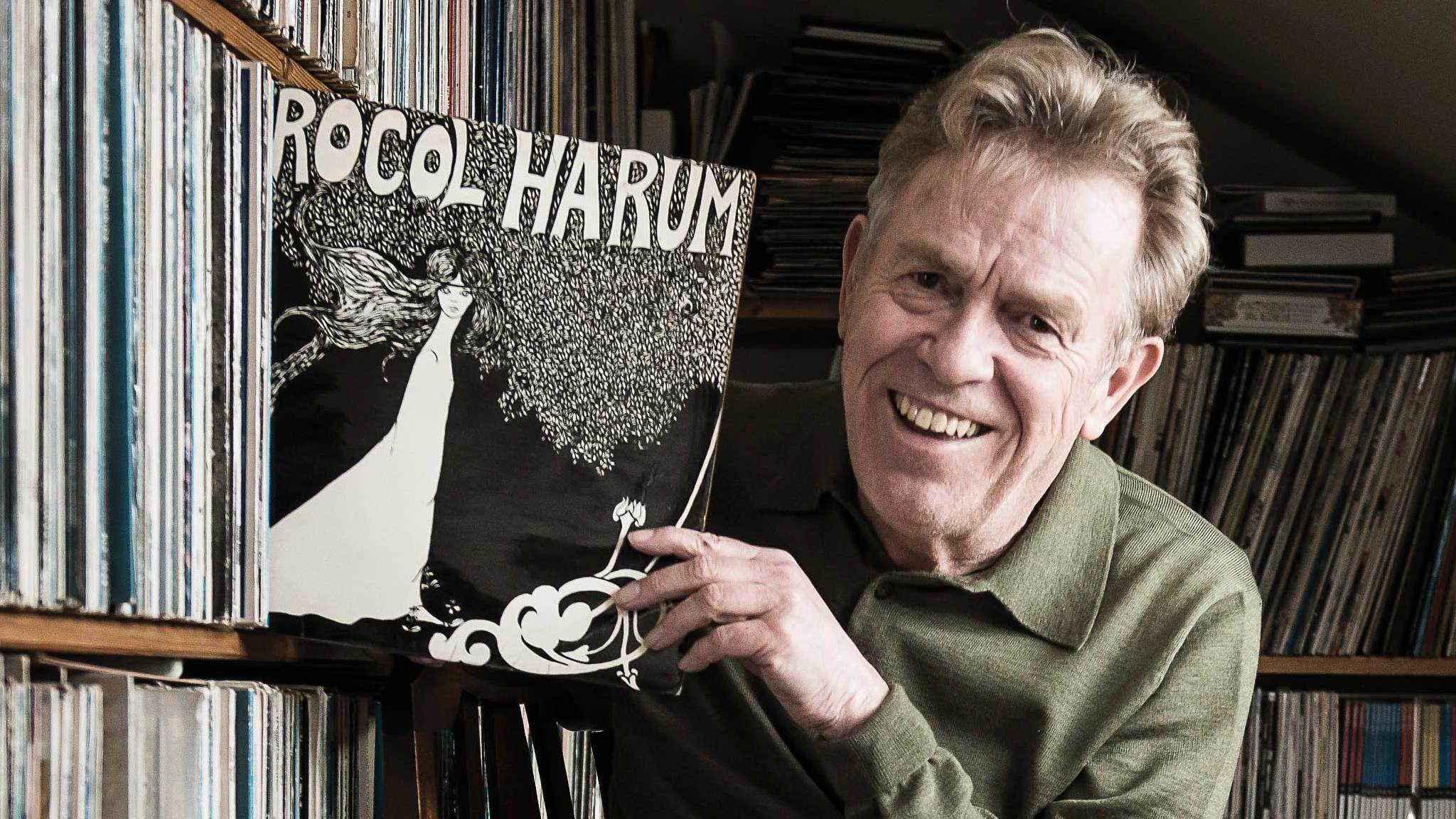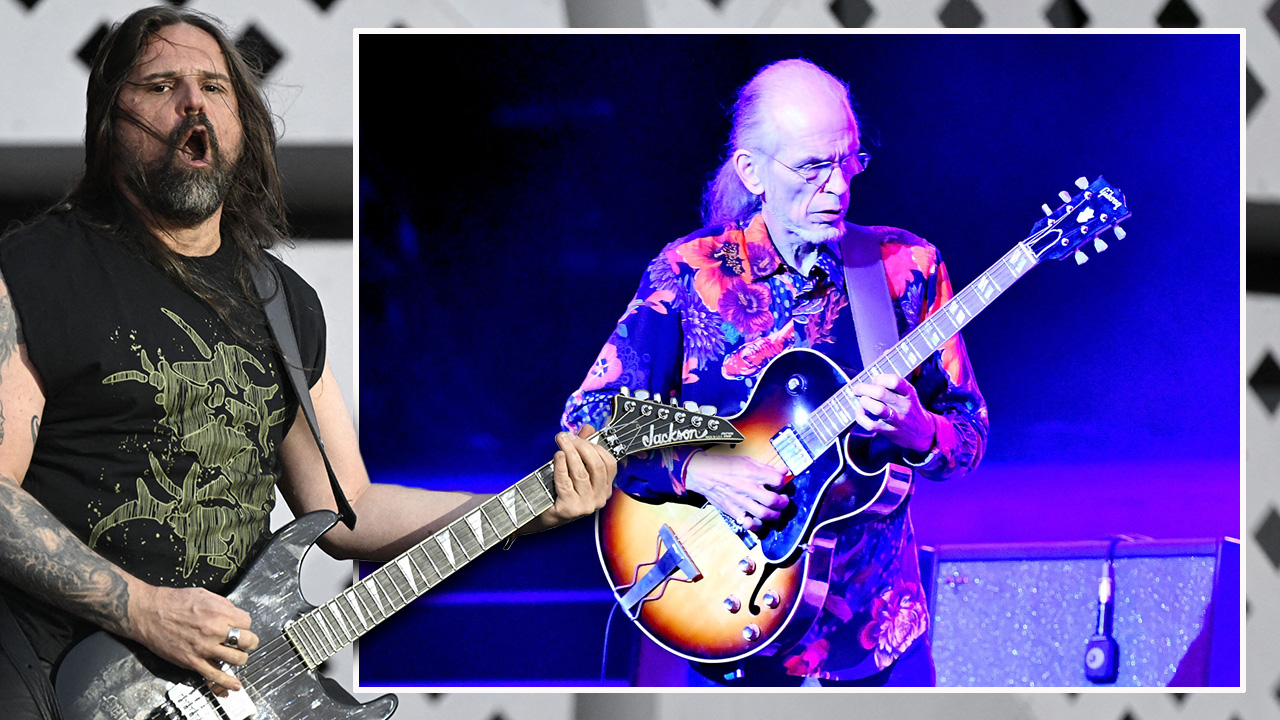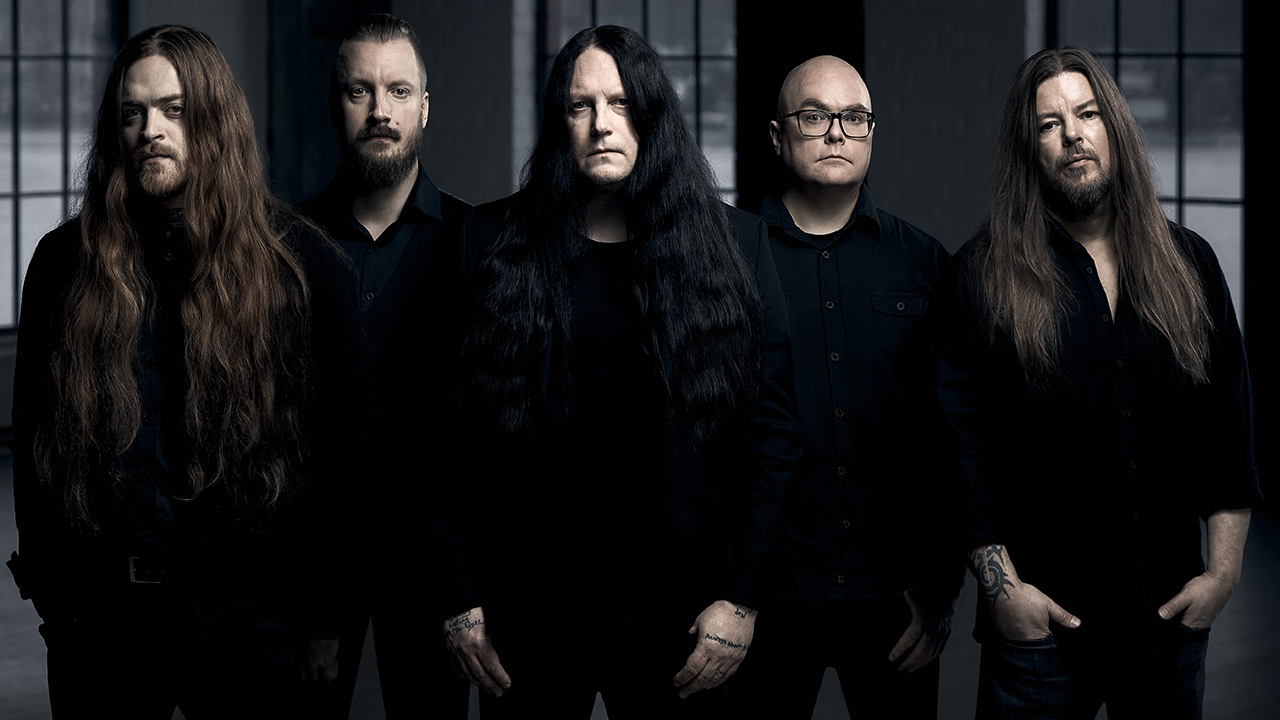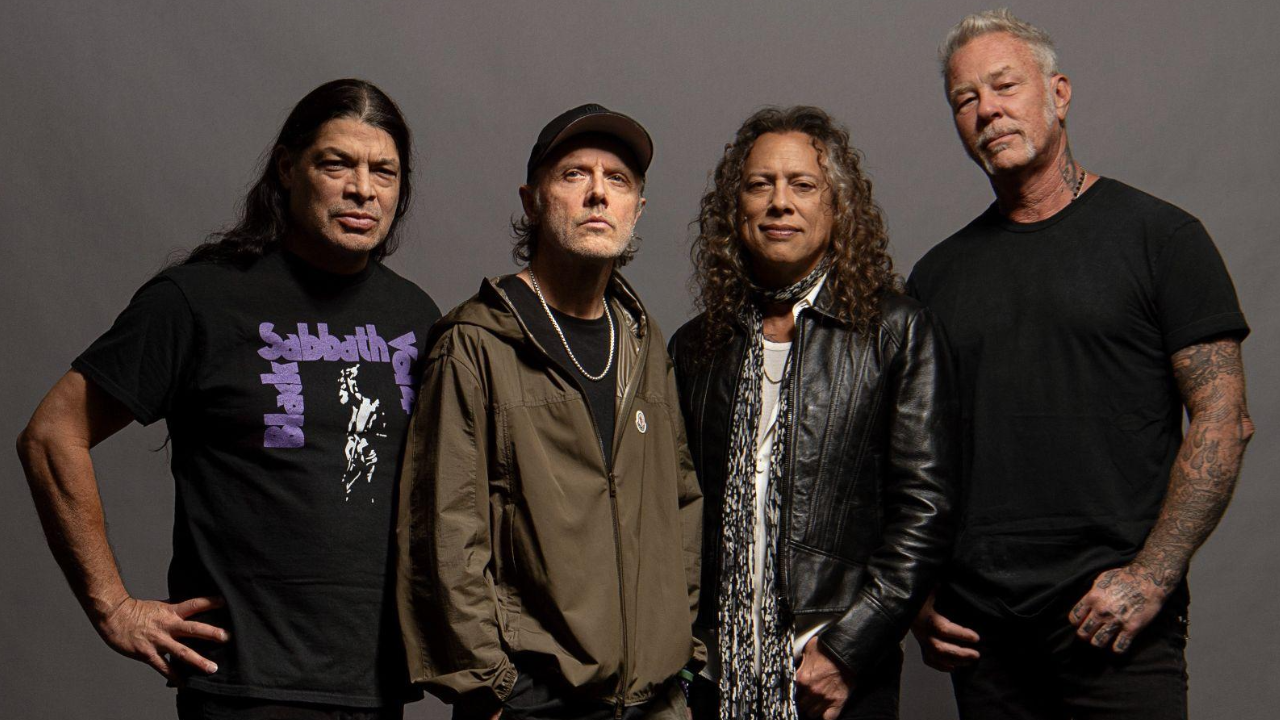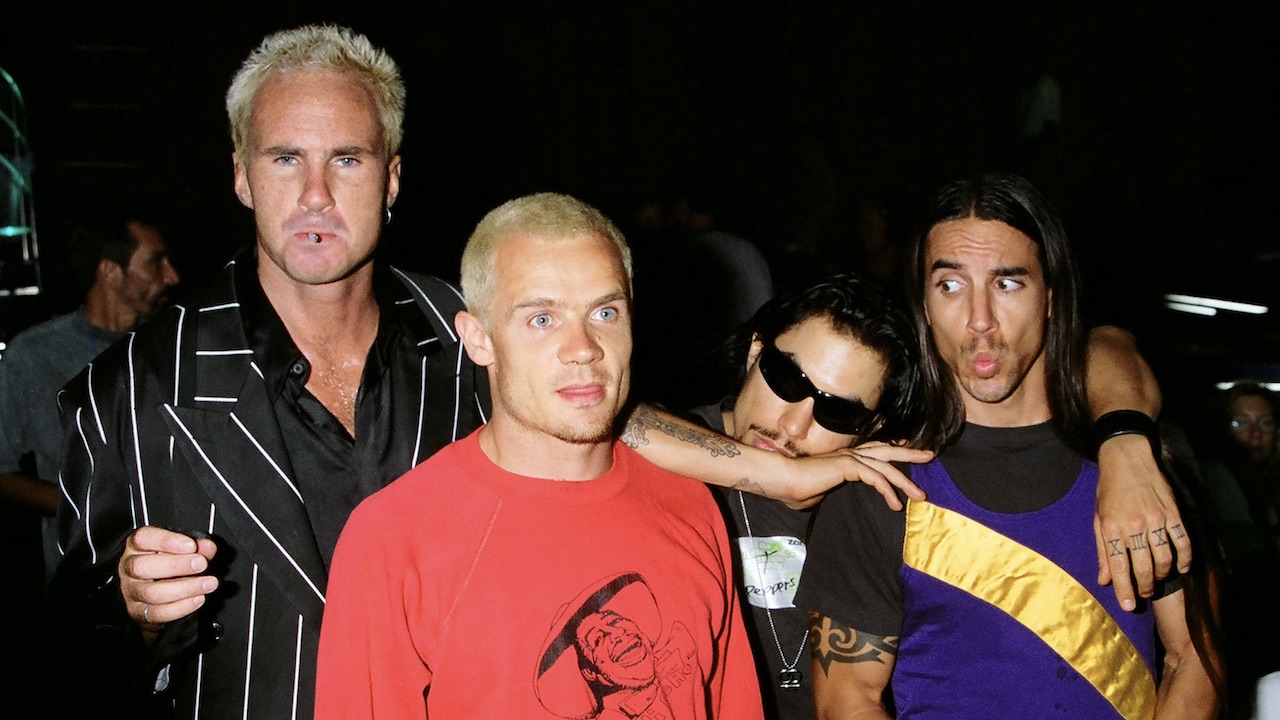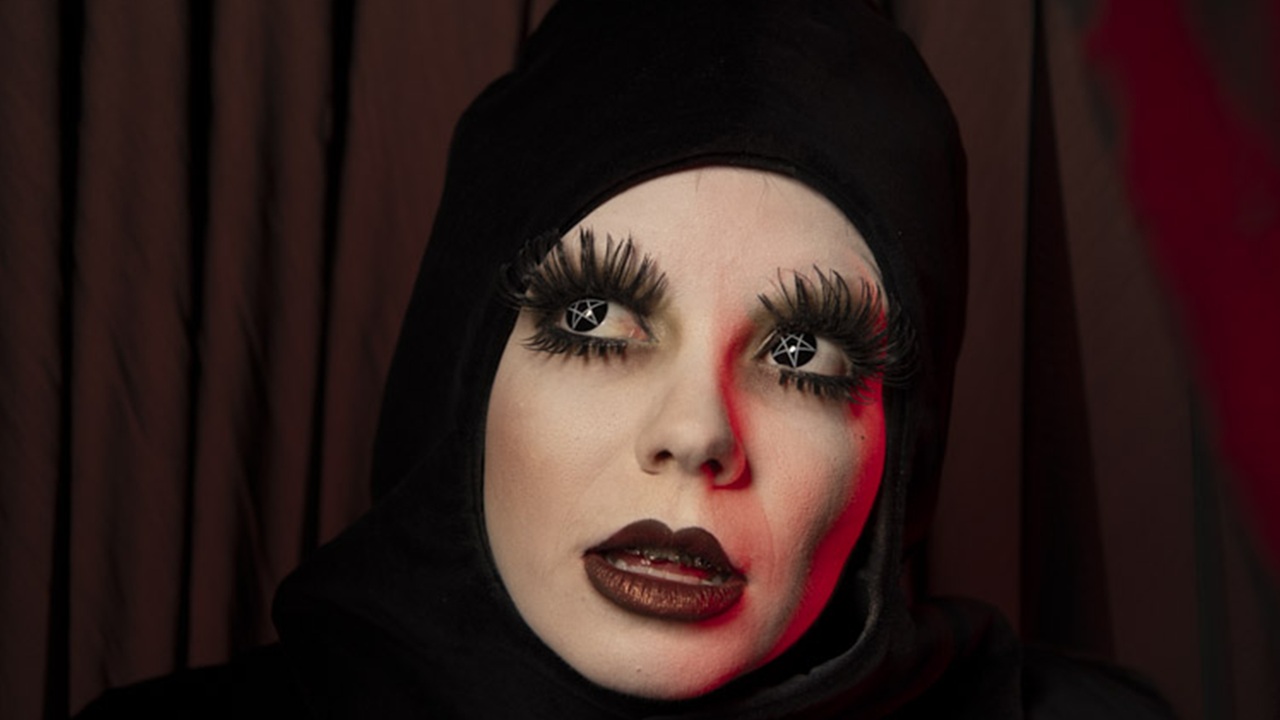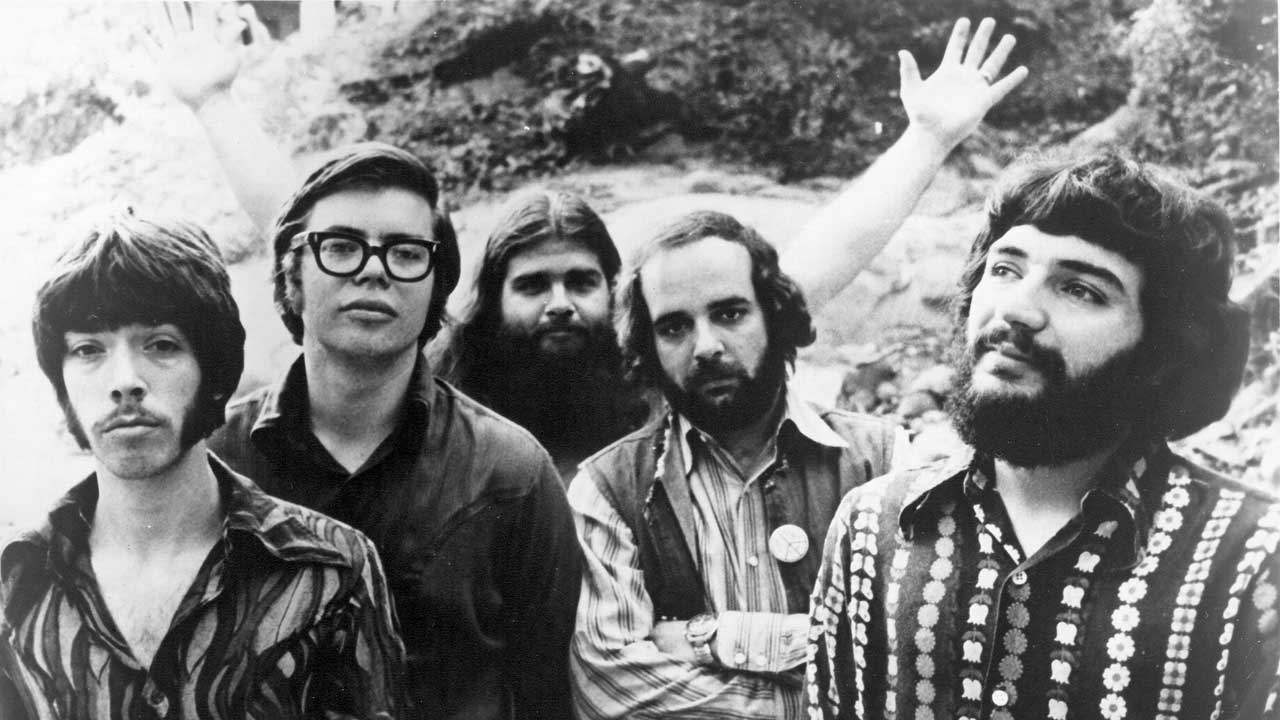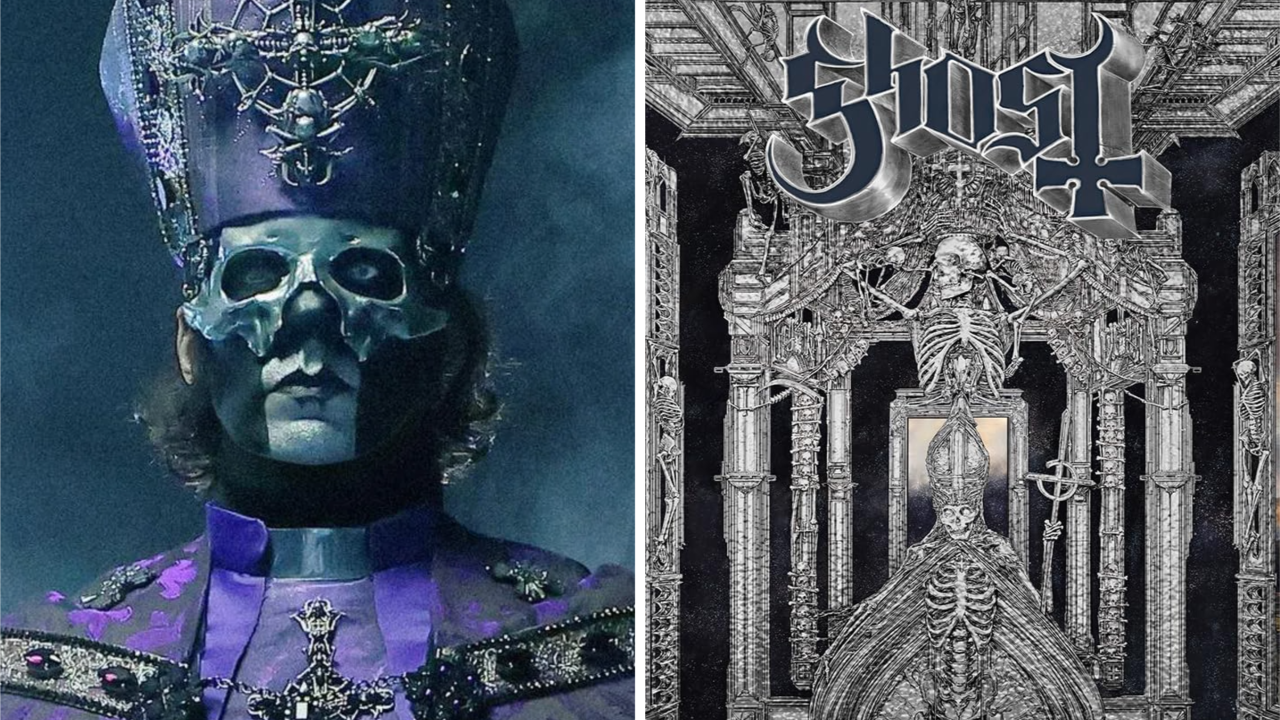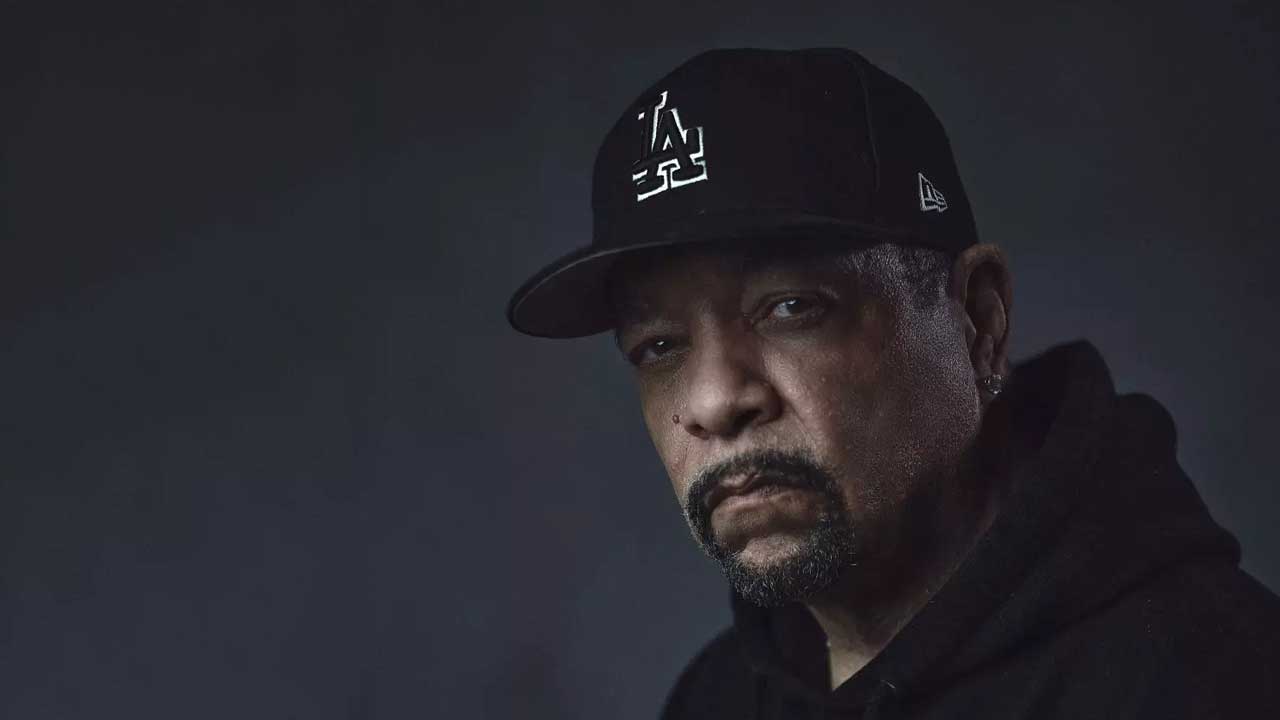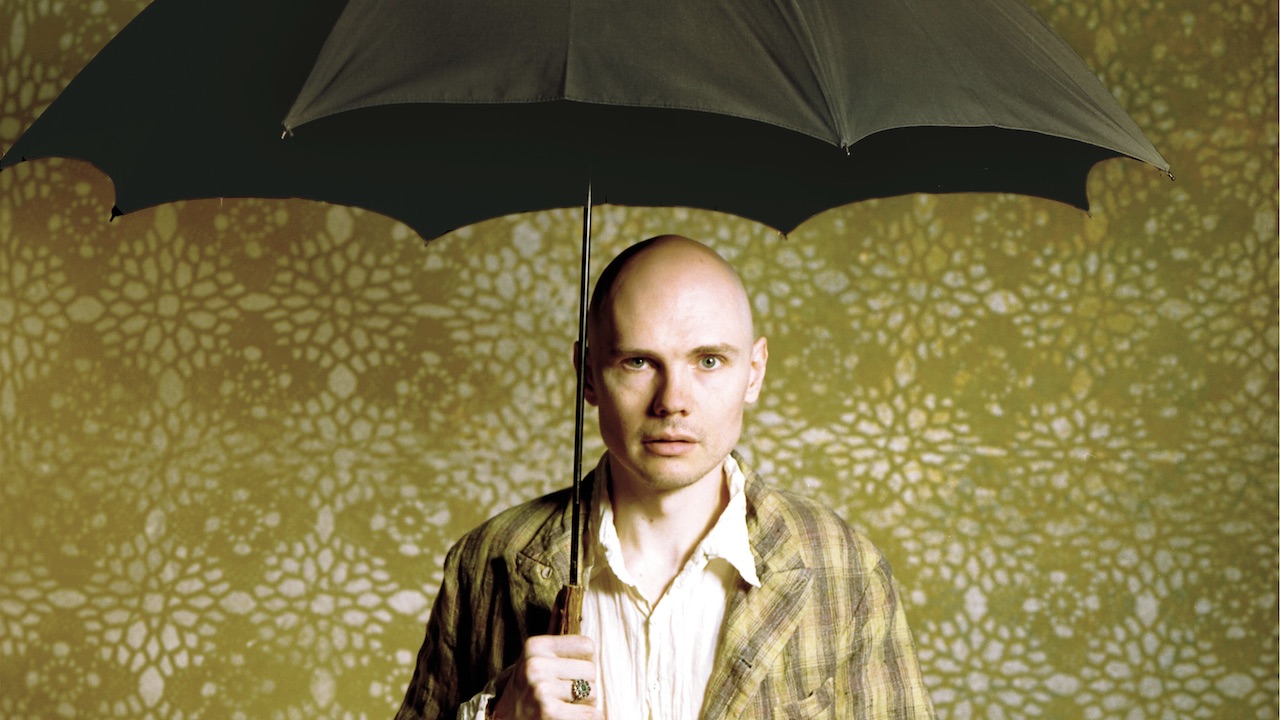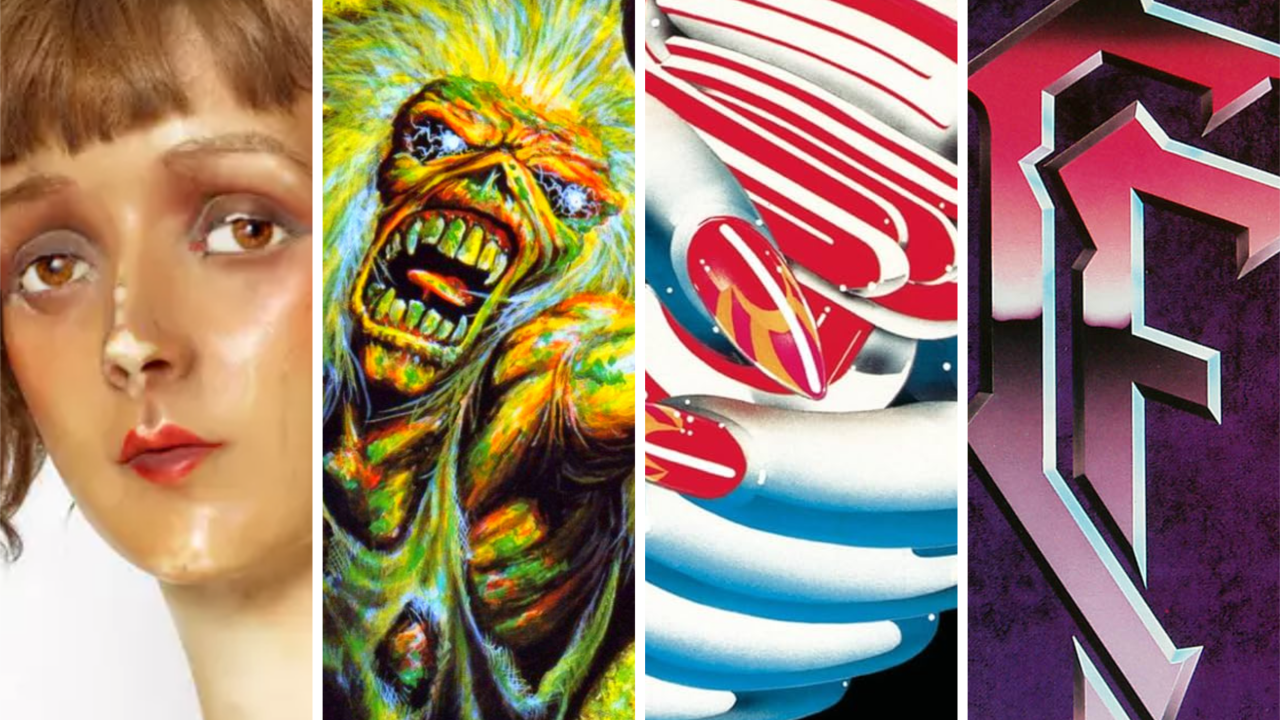“It all starts in June 1967. I’m 16 years old and on my way home from school in Wakefield, Yorkshire.
“I go past a tiny little kiosk called The Record Bar and I see this thing in the window. I think, ‘I’ve never seen that before.’ I was aware there was a new Beatles record coming but in those days you had no idea what anything looked like. I can remember standing there, looking closely and going, ‘Oh my God, that’s it!’ I was gasping for breath with excitement and frustration – I didn’t have enough money to buy it. I hotfooted it to my father’s place of work and begged him for the additional 10 bob to buy it, promising I’d work for him on Saturday. I raced back and bought it: Sgt Pepper’s Lonely Hearts Club Band. I played it endlessly. And when I look at it, it reminds me that in those days the packaging was completely indivisible from the music. Not only did it sound amazing, but its look reflected a whole world that you could just lose yourself in.
“Moving on, here’s Procol Harum, their debut. Everyone had heard Whiter Shade Of Pale and loved it. Then this comes out. I was at Trent Park College in 1968 doing drama cos that was the only thing I was good at. We had to do an exercise of lighting a bare stage to music. I persuaded my little group to do that to an instrumental at the end of this, Repent Walpurgis [laughs]. I remember using enormous faders to change the colours; all quite epic. I think Gary Brooker is one of the great British voices – he awakens something within me! I still love them.
“About ’68, what used to be called ‘underground music’ was now ‘prog’. I seized upon Yes, because they have a proper, choirboy-type singer. In those days a BBC radio session entailed three hours and four complete songs. You had to have groups who could do that – and Yes could, so they were on radio a lot.
“I saw them in 1971 in a lecture theatre in the LSE and the high spot of the act was a massive unpacking of Paul Simon’s America. I loved it. I’ll always go back to The Yes Album as it has Yours Is No Disgrace on it, which starts with those great keyboard stabs that were probably accompanied by a fledgling light show. We were so starved of entertainment in those days that after a night out we’d end up at our flat above the Leeds Permanent Building Society in Wood Green, put this on and one of us would be stationed at the light switch, fusing the whole street flicking the lights on and off to the song.
We’d fuse the whole street flicking the light switch on and off to Yours Is No Disgrace.
“Around the same time I was listening to The Move’s Message From The Country. It’s their last album and I love that band. I agree with [veteran producer/manager/label owner/writer] Joe Boyd that they were the great lost treasure – they should have been Led Zeppelin. They’ve got a sound that no one else has – two really distinctive, natural voices from Jeff Lynne and Roy Wood, and a great drummer in Bev Bevan. They’re all about great British eclecticism. Chuck it all in, see if it works. Camp and expansive. You don’t get that with American bands.
“I bought Pink Floyd’s Ummagumma one Saturday afternoon from the aforementioned Record Bar. I was on my own in the house that day and I sat there, played it through twice, then I was honest with myself. ‘You don’t like it, do you? No, you don’t.’ I plucked up the courage to ring the record shop and said, ‘Ken, I don’t like it, what shall I do?’ He said, ‘Bring it back.’ So I did and swapped it for Fairport Convention’s Unhalfbricking. Best decision I ever made! What makes this proggy is their version of A Sailor’s Life. Dave Swarbrick had been brought in to make this one-take jam – it’s absolute bloody perfection. Richard Thompson is at the height of his powers too, and how splendid to say, ‘Tell you what, we’ll have Sandy’s [Denny’s] mum and dad on the cover and us in the background.’ I still play it a lot, and it sounds best on vinyl.
“Back then, how you got to hear things was via compilations. Take Nice Enough To Eat. It was 14 shillings and sixpence – about 70p – and had pretty high strike rate for things I’d buy because of it. Fairport, Tull, Blodwyn Pig, Crimson… Everybody bought In The Court Of The Crimson King – it was compulsory.
“You Can All Join In is even more memorable. I was living in halls in Cockfosters and would go to the record shop opposite the Tube station. On Saturday you’d go into the West End and look at records, be with records, inhale the cover details. All I wanted to do was get a job around records. So in 1973 I started at HMV in Bond Street. I worked there for three years and that’s how I ended up with bizarre things like How To Give Yourself A Stereo Checkout. Working around records, you pick up things like Terry Riley’s A Rainbow In Curved Air. This had an impact on The Who for Baba O’Riley, and, of course, in naming Curved Air. A typical Saturday night would be going to see our friends in Finsbury Park who had something called The Sounds Room. You’d recline on scatter cushions, drink rough Turkish red wine, smoke cigarettes and listen to this. Possibly at 10pm you might stop and watch Match Of The Day.
“Everybody liked Family’s Music In A Doll’s House. But Fearless is my favourite, for two tracks – Sat’ d-y Barfly and Larf And Sing. It’s a gentler album for them, but very unusual compositions. My enthusiasm for music like this later went into bands like 10cc. And around this time musically you could either go more prog, or more West Coast. I went West Coast.
“A similar vintage is guitarist John Fahey. I was sold on him the minute I heard John Peel say, ‘I’m going to play you a track from The Transfiguration Of Blind Joe Death.’ That’s the coolest sentence I’d ever heard! This compilation has The Singing Bridge Of Memphis, Tennessee. It’s the sound of a metal bridge. If I knew more about this, I’d call it musique concrète. He’s quite left-of-field, and I always liked this kind of thing. I find most of it now via Spotify’s Discover Weekly recommendations.
“My progressive taste has mutated into abstract sounds. There’s an app called Coffitivity, which is background sounds of café noises to work by. There’s also a French radio station called Fip, which is a very eclectic service, lots of jazz and film music. It sounds as if it comes from one of those fabulous wooden beach huts at the beginning of Betty Blue. The voices between tunes are often women’s, incredibly sexy, and it takes you to another place. People talk a lot about the downside of digital delivery, but there are a lot of upsides – and I would never have found these newer, weirder things the old way.”
David Hepworth’s book 1971: Never A Dull Moment – Rock’s Golden Year is out now via Transworld. Visit the Penguin website for more information.
- Meet the best turntables for your record collection
- Smaller budget? No problem! These are the best budget turntables
